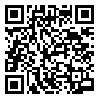Volume 7, Issue 2 (June 2025)
IEEPJ 2025, 7(2): 0-0 |
Back to browse issues page
Download citation:
BibTeX | RIS | EndNote | Medlars | ProCite | Reference Manager | RefWorks
Send citation to:



BibTeX | RIS | EndNote | Medlars | ProCite | Reference Manager | RefWorks
Send citation to:
Shojaei Z, Zarei M, Ahmadi F. (2025). Comparing the Effectiveness of Trial-Based Cognitive Therapy and Cognitive Behavioral Therapy in Reducing Social Anxiety. IEEPJ. 7(2), doi:10.22034/ieepj.2025.7.2.1029
URL: http://ieepj.hormozgan.ac.ir/article-1-1015-en.html
URL: http://ieepj.hormozgan.ac.ir/article-1-1015-en.html
1- Ph.D. Candidate in Clinical Psychology, Shahed University, Tehran, Iran
2- Ph.D. Graduate in Counseling, University of Hormozgan, Bandar Abbas, Iran ,zareimohamad1@gmail.com
3- Undergraduate Student in Psychology, Hazrat Masoumeh University, Qom, Iran
2- Ph.D. Graduate in Counseling, University of Hormozgan, Bandar Abbas, Iran ,
3- Undergraduate Student in Psychology, Hazrat Masoumeh University, Qom, Iran
Abstract: (712 Views)
Objective: This study aimed to compare the effectiveness of Trial-Based Cognitive Therapy (TBCT) and Cognitive Behavioral Therapy (CBT) in reducing symptoms of social anxiety among university students.
Methods: A quasi-experimental pre-test–post-test design was employed. Twenty students with above-average levels of social anxiety (LSAS-SR score ≥ 55) were purposefully selected and randomly assigned to two groups. One group received eight individual sessions of CBT, while the other group received eight individual sessions of TBCT. Outcomes were assessed using the Liebowitz Social Anxiety Scale – Self-Report (LSAS-SR). Data were analyzed through analysis of covariance (ANCOVA) and multivariate analysis of covariance (MANCOVA).
Results: Both interventions significantly reduced overall social anxiety, performance anxiety, and social avoidance compared to baseline. However, TBCT showed greater effectiveness than CBT across all measured indices. This superiority was evident in reductions of social anxiety symptoms and improvements in functional outcomes.
Conclusions: The findings indicate that while both CBT and TBCT are effective in treating social anxiety, TBCT may provide enhanced therapeutic benefits. These results suggest that TBCT can be considered a promising alternative to standard CBT in clinical practice and may inform future therapeutic planning for individuals with social anxiety.
Methods: A quasi-experimental pre-test–post-test design was employed. Twenty students with above-average levels of social anxiety (LSAS-SR score ≥ 55) were purposefully selected and randomly assigned to two groups. One group received eight individual sessions of CBT, while the other group received eight individual sessions of TBCT. Outcomes were assessed using the Liebowitz Social Anxiety Scale – Self-Report (LSAS-SR). Data were analyzed through analysis of covariance (ANCOVA) and multivariate analysis of covariance (MANCOVA).
Results: Both interventions significantly reduced overall social anxiety, performance anxiety, and social avoidance compared to baseline. However, TBCT showed greater effectiveness than CBT across all measured indices. This superiority was evident in reductions of social anxiety symptoms and improvements in functional outcomes.
Conclusions: The findings indicate that while both CBT and TBCT are effective in treating social anxiety, TBCT may provide enhanced therapeutic benefits. These results suggest that TBCT can be considered a promising alternative to standard CBT in clinical practice and may inform future therapeutic planning for individuals with social anxiety.
Keywords: Social Anxiety, Social Avoidance, Performance Anxiety, Cognitive Behavioral Therapy, Trial-Based Cognitive Therapy
Type of Study: Original |
Subject:
Evolutionary Psychology
Received: 2025/02/16 | Accepted: 2025/04/15 | Published: 2025/06/1
Received: 2025/02/16 | Accepted: 2025/04/15 | Published: 2025/06/1
Send email to the article author
| Rights and permissions | |
 |
This work is licensed under a Creative Commons Attribution-NonCommercial 4.0 International License. |







